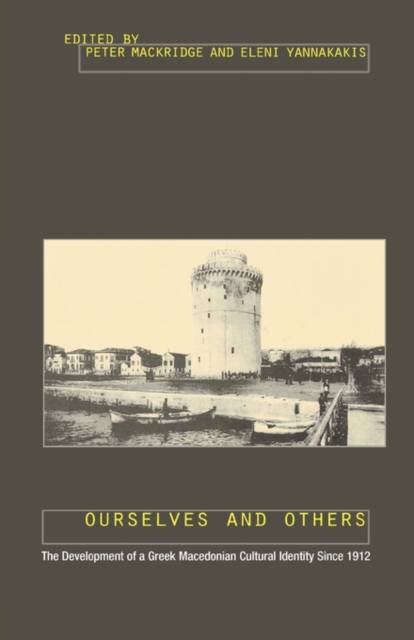
- Afhalen na 1 uur in een winkel met voorraad
- Gratis thuislevering in België vanaf € 30
- Ruim aanbod met 7 miljoen producten
- Afhalen na 1 uur in een winkel met voorraad
- Gratis thuislevering in België vanaf € 30
- Ruim aanbod met 7 miljoen producten
Zoeken
Ourselves and Others
The Development of a Greek Macedonian Cultural Identity Since 1912
Paperback | Engels
€ 81,45
+ 162 punten
Omschrijving
When it was incorporated into the Greek state in 1912, Greek Macedonia constituted a mosaic of populations who spoke different languages and shared different cultures and religions. The Greek state, the local authorities and the local intelligentsia strove to achieve the ethnic and cultural assimilation of all these populations -- in the end, with varying degrees of success. Long the site of fierce nationalist activity, Macedonia is a revealing microcosm of the ethnic divides that resist the homogenizing tendencies of nation-states throughout the world.This timely and interdisciplinary book brings together the work of specialists in various fields to spotlight the cultural processes of assimilation that have taken place in Greek Macedonia since 1912. It sheds new light on the old and complex socio-historical roots of this hotly contested area and of the Balkans in general, and will serve as a model for future studies on nationalism, ethnic identity and cultural heritage.
Specificaties
Betrokkenen
- Uitgeverij:
Inhoud
- Aantal bladzijden:
- 272
- Taal:
- Engels
Eigenschappen
- Productcode (EAN):
- 9781859731383
- Verschijningsdatum:
- 1/03/1997
- Uitvoering:
- Paperback
- Formaat:
- Trade paperback (VS)
- Afmetingen:
- 136 mm x 215 mm
- Gewicht:
- 317 g

Alleen bij Standaard Boekhandel
+ 162 punten op je klantenkaart van Standaard Boekhandel
Beoordelingen
We publiceren alleen reviews die voldoen aan de voorwaarden voor reviews. Bekijk onze voorwaarden voor reviews.






